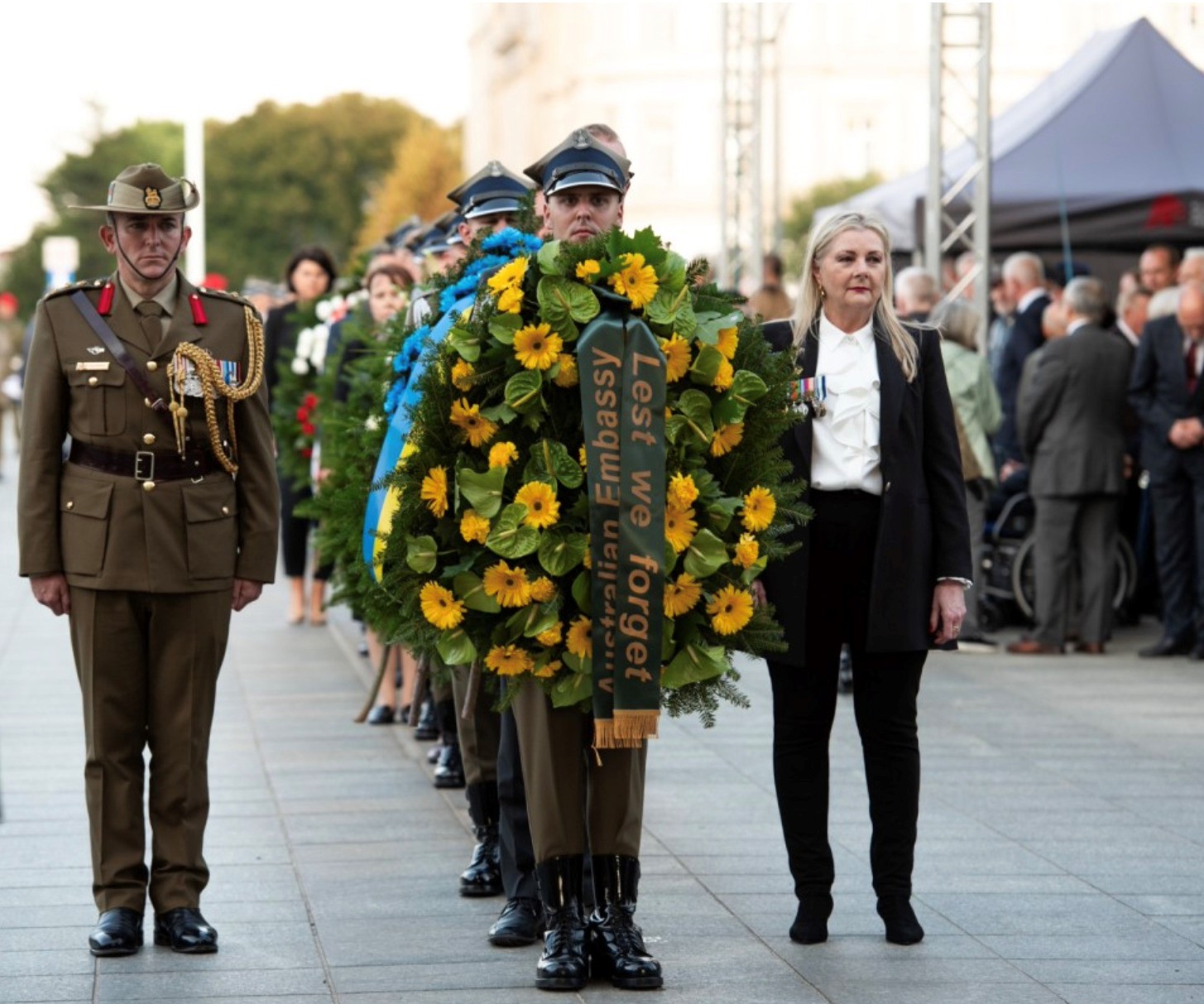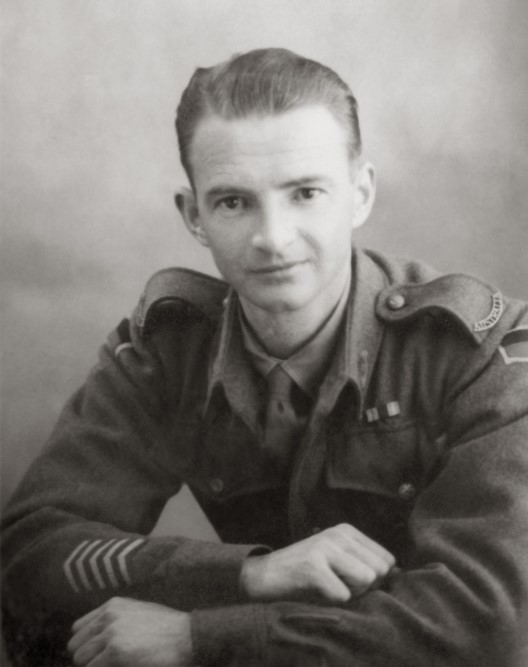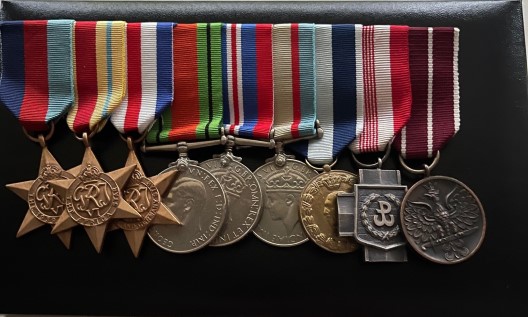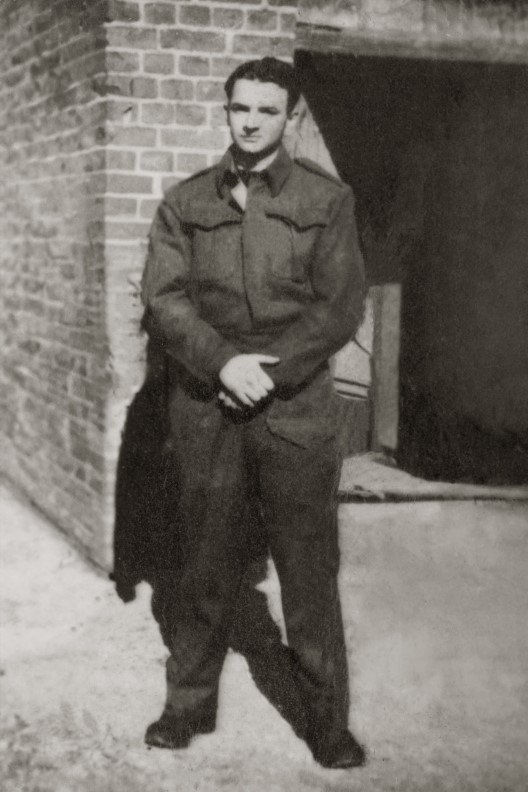Honours for Australian who fought with Polish Resistance

For Jennifer Gorrie, there are enduring mysteries at the heart of her father’s service in the Second World War. ‘My dad never spoke about the war very much – I don’t think many of them did – but I always knew he was a prisoner of war,’ she says.
‘One story he did tell is that when he was shot and wounded on Crete, a German paratrooper was coming towards him and he thought, “I’m a goner”. But apparently the German just handed him a cigarette and moved on…’
How the late Private Harvey Frederick Gorrie then made his way from Crete to Stalag XXa, a German POW camp in Toruǹ [Thorn], Poland, is just the first mystery in his extraordinary journey through war-torn Europe. That journey began with early enlistment in the City of Sydney Regiment, followed by service in the 2nd/1st Battalion in the Middle East, Palestine, Libya and then eventual capture in the disastrous Crete campaign.

When researching her father’s history, Jennifer ‘stumbled across’ the Stalag XXa Facebook page. Through this, she got in touch with wartime history guide and Toruǹ local, Paweł Bukowski, who located the farm where Mr Gorrie had hidden after escaping from the camp with 2 English soldiers (who were later recaptured) in September 1943.
In an essay penned for The Last Post in 1978, Harvey Gorrie recalled that just 30 minutes after seeking shelter with the friendly farmers ‘our peace was shattered by a great knocking on the door… I felt that this, indeed, was IT’.
It turned out that the well-dressed men with guns were from the Polish Underground. They gave Private Gorrie and the Englishmen a choice: We will give you documents, money and supplies, and you can try to escape through the port of Gdaǹsk [Danzig] – or you can throw in your lot with us.
Harvey Gorrie chose to stay and fight with the partisans.
Following Poland’s rapid defeat by the combined German blitzkrieg and Soviet invasion in September 1939, hundreds of thousands of servicemen who evaded capture were reorganised into the Polish Home Army. The army formed the core of a fierce national resistance which culminated in the failed Warsaw Uprising of August-October 1944.
Harvey Gorrie, who went by the alias “Henryk” given to him by the partisans, ended up serving as a Sergeant with a rural unit of the Home Army for 18 months, one of only a handful of Australians known to have fought with the Poles. Years later, he reflected on his service:
Our raids yielded a rich harvest of weapons, ammunition, clothing, food and bicycles, and I think we sowed a crop of fear and anxiety in the minds of our victims and the German population generally.
In May last year, Jennifer took her research to Lloyd Brodrick, former Australian Ambassador to Poland, who submitted an official enquiry. Not long after, she received a call from the ambassador telling her that, after 80 long years, her father was to be formally recognised by the Republic of Poland.
Only a few months later, Jennifer returned to Warsaw and on 1 September 2023, at the official annual ceremony at the Tomb of the Unknown Soldier, Sergeant Harvey “Henryk” Gorrie was posthumously presented 2 medals initially awarded by the Polish authorities in London: the Cross of the Home Army, and the Army Medal for War 1939-1945.
‘The Guard of Honour was very impressive,’ Jennifer recalls. ‘We laid a wreath on behalf of the Australian Government with Ambassador Brodrick and Colonel Paul Graham, Australia’s Defence Attaché. My dad also has the France-Germany Star – of which he was particularly proud – not many Australians have the star because not many actually fought in Europe.’
When the Soviets liberated Poland, Harvey Gorrie endured yet another near-death experience when they refused to believe he was Australian rather than Austrian. He eventually made his way to the Ukrainian port of Odessa – exactly how is another mystery… But he boarded a ship and made it to London in time for Victory in Europe Day.

Years later Mr Gorrie, who passed away in 1988, travelled back to communist Poland to look for something – something he had buried and left behind. He was greeted by a changed landscape and suspicious authorities, and came home disappointed.
‘My dad would go to the RSL every Friday – and I think for those guys it was very therapeutic – but most of the time they just tried to forget,’ Jennifer reflects. ‘I’d like to know what he was looking for when he went back to Poland. I’d like to know if his was the longest time any Australian fought in a resistance movement, or for another nation.’
Jennifer Gorrie’s palpable pride in her father’s decision to stay and fight with the Poles fuels her continuing quest to unravel the mysteries of his wartime service.
Images:
- The Guard of Honour carries the Australian Embassy’s wreath, flanked by Jennifer Gorrie and Australian Defence Attaché Colonel Paul Graham.
- Private Harvey Frederick Gorrie
- Private Gorrie’s medals; the 2 Polish awards are on the far right.
- Harvey Gorrie in German POW camp Stalag XXa
(Images courtesy of Jennifer Gorrie and the Polish Office for War Veterans and Victims of Oppression.)

